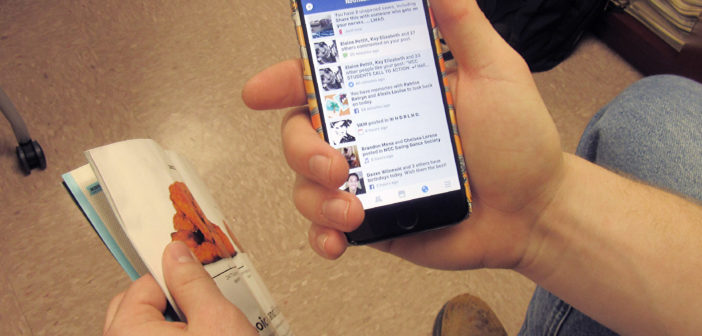With the modern world being able to access the Internet and share all kinds of information, people with a smartphone are on it many times a day, consuming media at a rapid rate. In boredom, we look down at our phones to see something new. Scrolling through, we might see that someone liked our post, and that brings a pretty nice feeling.
Most of the posts we see are relatively innocent and, most of the time, they don’t cut too deep. A humorous post might get more likes than the others. A viral, shocking post, however, may get more attention than likes, by views and reactions.
Now, I am pretty critical of social media platforms, and people’s need to overshare, and in turn, feel important. With the introduction of Facebook Live, I knew there would be some problems with this need to broadcast. However, the beating that occurred on Facebook Live a few weeks ago took me, and many others aback. I thought Live would only feed our anxieties of not posting or sharing our experiences—it actually fed something much worse.
Viewing a fight for entertainment is an act that dates back as far as the ancient Romans. Over the course of history, people have attended sporting events that center around fighting, and enjoyed plays and movies that include a climactic fight scene. So, it’s not very surprising that the violence here was broadcasted: whether it was the violence on Boxing Day in malls, retweeted Worldstar videos or verbal arguments turning into memes, people are still being entertained by this violence somehow. “Somehow” meaning either being entertained positively or negatively, as in cringing at it, but still showing interest.
Our being entertained can’t be taken lightly at all. It is sick to think of the lack of humanity in the situation, and the lack of respect shown for the victims of this violence. The use of real violence to attract viewing and attention has been plaguing forms of media, and it is something that is unacceptable to take part in.
It’s not that we shouldn’t be interested in what happened—we should take it as a harsh wake-up call that social media is something many Americans are addicted to. Simon Sinek, British/American author, in an interview on an episode of “Inside Quest,” compared our everyday use of social media to alcoholism. We get a rush of dopamine looking at that media on the screen, and we do it more and more until we feel anxious to leave the house without that cell phone in our pocket.
A “phone” used to be a device we used to call people; now it is a device people let become a part of their bodies, mindlessly looking at social media when bored. Sure, the spread of ideas using the Internet has been amazing. However, what we’ve let much of our media online become is thoughtless entertainment, articles about nothing, top ten lists, memes, beauty standards, bragging posts, fighting in comments, escalated into fighting in real life.
How do we fix ourselves? We make certain that we don’t rely on our apps to live. We follow trends that are potentially harmful when we consume a large amount of information to be “inspired” by. What we really need to do is withdraw from it, and only use it when it’s completely necessary. Gaining inspiration from real experiences and places, as well as pieces of art that we may very well find on the Internet, really makes us unique.
The media needs a makeover; posts need to be more thoughtful, more insightful, more artistic. Until we get to that point, we will continue to see fights on Facebook Live.

